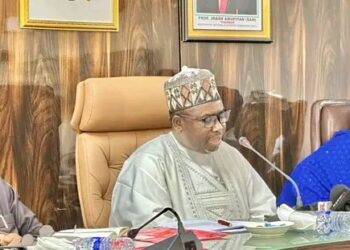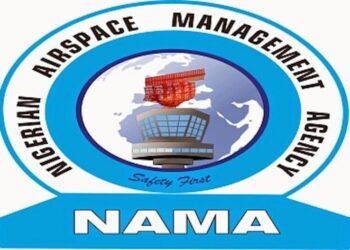The Presidential Compressed Natural Gas Initiative (PCNGi) says the Federal Government plans to put one million gas-powered vehicles on the road by 2027.
PCNGi’s Chief Executive Officer and Project Director, Mr Michael Oluwagbemi, made this known in a statement on Friday, after hosting the first-ever Compressed Natural Gas Stakeholders and Investors’ forum.
Oluwagbemi, who spoke on “A Comprehensive Overview of Nigeria’s CNG Ecosystem”, highlighted specific milestones among the bold vision and objectives of the CNG initiative.
“The Federal Government’s ambitious plan to put one million gas-powered vehicles on the road by 2027 means an average annual rate of 250,000 vehicle conversions per year.
“Other plans include the establishment of 40,000 auto gas conversion workshops and the creation of 750,000 jobs by 2027, across the emerging CNG value chain,” he said.
He said that the forum reinforced Nigeria’s suitability and commitment to transiting to a more efficient and sustainable gas-powered economy.
According to him, the high-power forum with the theme “Nigeria’s CNG Revolution: Harnessing Opportunities for a Sustainable Future”, featured presentations, panel discussions, exhibition and networking, among the attendees.
He said that the participants comprised key figures, critical stakeholders, indigenous and international experts in both public and private sectors, spanning across the energy, transportation, finance, and environment value chain.
“The occasion, among others, enabled stakeholders and investors the opportunity to assess the potentials of Nigeria’s CNG industry; evaluate the government’s ongoing efforts in advancing CNG as a sustainable fuel alternative for the nation.
“It was to also examine the regulatory framework vis-à-vis international best practices; and explore the economic opportunities that abound in the sub-sector in the committed transitioning to a gas-powered mobility system in the coming years,” he said.
The PCNGi boss, who is an engineer, noted that given the characteristics of CNG and its benefits as a cheaper fuel, the strategic vision guiding the initiative was to alleviate the cost of living for Nigerians.
He said that CNG will significantly reduce the cost of transportation and ultimately improve the standard of living with a cleaner and safer fuel.
Oluwagbemi said: “In all of these, our strategic objectives are very clear: How do we reduce the cost of transportation for the common man? How do we make Nigeria’s gas work for him or her?
“How do we ensure that this gas working for Nigeria, gives Nigeria an economic advantage?”
Speaking further to the viability of the framework that was adopted by PCNGi for the implementation of the CNG initiative, Oluwagbemi stated the comprehensive approach covering the industry’s demand and supply sides.
He added: “We’re not just focusing on conversion centres but also incentivising investment on the supply side, taking an end-to-end approach.”
He mentioned specific collaborations with the Gas Aggregation Company of Nigeria (GACN) and its partners to ensure sufficiency on the upstream side.
According to Oluwagbemi, the initiative is actively engaging the organised commercial transport operators’ network to integrate six million commercial vehicles into the CNG ecosystem.
Also, Toyin Subair, another member of the PCNGi, corroborated the economic advantage of Nigeria adopting CNG as an alternative fuel and reaffirmed that the transition is for the betterment of every Nigerian and the nation as an economy.
Subair said: “The good thing about this initiative is that we don’t need to subsidise or buy imported petrol.
“We (Nigeria) have our own gas here, and the 6 million commercial vehicles (that will be converted) are ours.
“If we dive into this commercial opportunity, we’ll bring down the cost of transportation for the average Nigerians.”
On his part, Dr Armstrong Takang, CEO of the Ministry of Finance Incorporated (MOFI), and member of the PCNGi Steering Committee, emphasised the crucial aspect of training engineers to implement the programme successfully.
“A major part of this programme is to train as many engineers as possible who are qualified and certified.
“Then, monitor them in terms of their practice, specifically focusing on the safety of gas-powered vehicles.
“This commitment to training and safety will ensure a robust foundation for the expansion and sustainability of the CNG ecosystem in Nigeria,” Takang said.
Dr Mohammed El-Gawish, an International CNG Expert and one of the panelists, validated the potential and feasibility of Nigeria’s CNG initiative.
Drawing parallels with the success of a similar initiative in Egypt in just two and a half years, El-Gawish commended Nigeria’s plans and action points.
He said, “The roadmap or the action plans that are put in place are all very promising.”
Meanwhile, addressing concerns about converting vehicles to CNG, Oluwagbemi reassured Nigerians that costs would be minimal with emphasis on affordability.
According to him, this is to underscore the government’s commitment to ensuring that the benefits of the CNG revolution are accessible to a broad spectrum of the population.
The PCNGI boss said that it would also to foster economic inclusivity and inspire a quicker and more comprehensive transition to a CNG-powered transportation landscape.
“Other highlights of the forum included a virtual and physical exhibition; panel discussions on “Navigating the CNG Ecosystem in Nigeria; The Gas Potential; from Pricing to Availability; and International Perspectives on Regulatory Best Practices,”(NAN)











